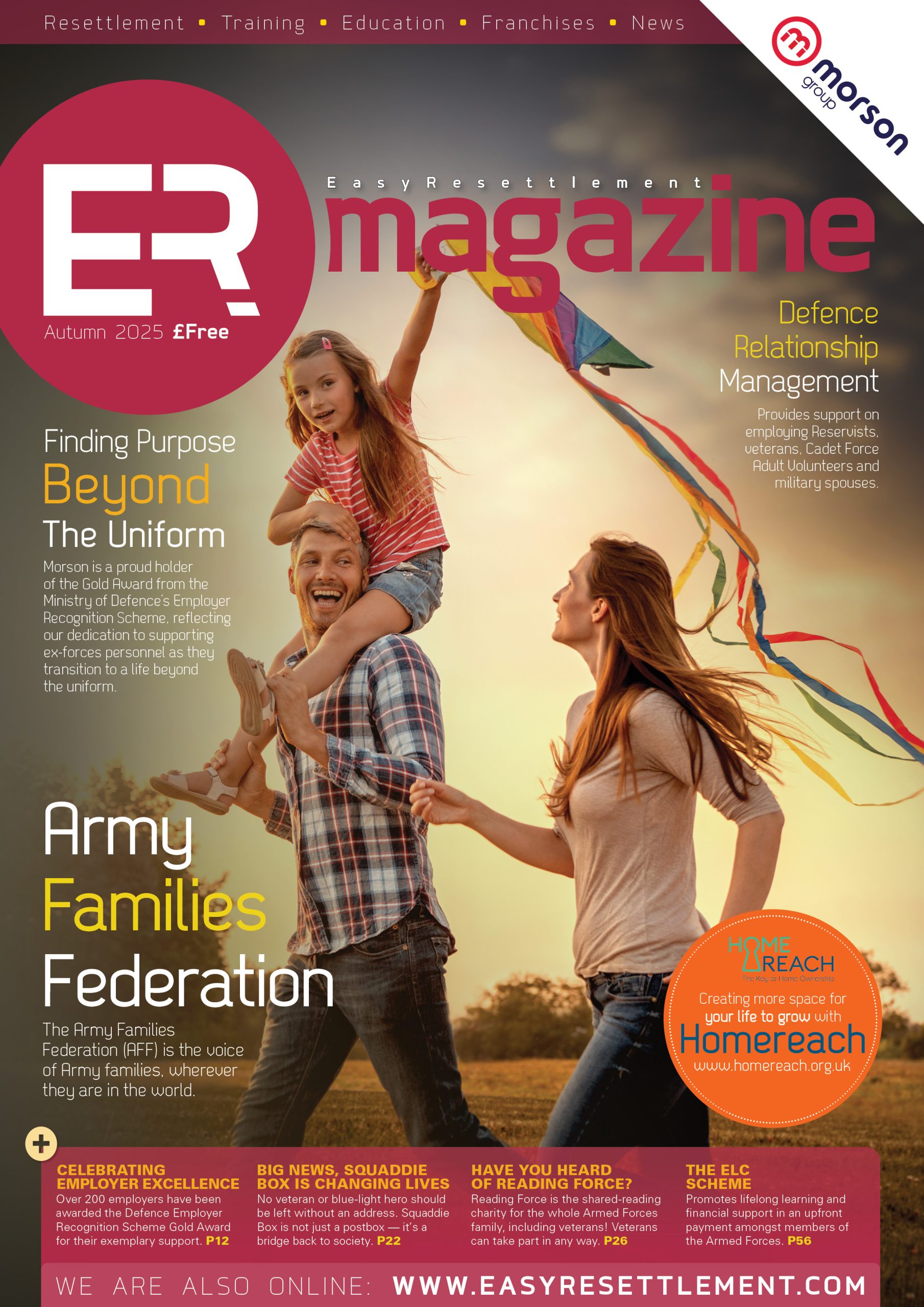The unique benefits of employing veterans
A look at the unique benefits and transferable skills that veterans bring to the work-place.
Attention to detail, discipline and time-management are drilled into recruits from the very start of basic training but you would be surprised how many civilians struggle with even the basics of turning up to work on time.
Military service naturally entails early starts, irregular and long hours, working in unpleasant conditions and having the dedication and commitment to getting the job done but unfortunately, many civilians won’t understand what military service entails and the benefits of having veterans in the workplace.
Your CV, covering letter, application form and interviews are all opportunities to show future employers your unique skill-set and the value you can bring to their organisation.
Civilianise Your Skillset
This is extremely important but easy to get wrong. Don’t use military acronyms or jargon. There is a civilian equivalent to everything you do in the forces so make sure you find out what it is.
Soldiers, sailors and airmen become staff, employees, workforce or team. Weapons, vehicles and uniform become equipment (mechanical, electronic or heavy), supplies and logistics. A tank crewman becomes a heavy systems operator, a combat operation is a hazardous environment and reconnaissance could become data collection and analysis.
Teamwork
This is something lots of people put down but may struggle to explain. A successful team will utilise its member’s strengths and weaknesses to achieve results. Use examples of when you have worked as part of a (probably diverse) team effectively and explain how your role contributed towards its success, and what skills were involved.
Collaborative skills are essential in most roles and knowing when to lead and when to follow in a team can be vital to its success.
An extra bonus for prospective employers is if they think you are able to install some of that team spirit and military camaraderie into their working environment.
Leadership
Leadership and respect for leadership is instilled into military personnel from the start of basic training and applies throughout your career no matter what rank you are. There are different leadership styles but regardless of which one you use,employers know that a good leader will be able to communicate, motivate, delegate, inspire and influence and their behaviour will impact on employee morale, product quality and productivity.
Military personnel are likely to have managed a team (with a diverse range of skills and backgrounds) in challenging environments, are likely to have had to make effective critical decisions and will have been responsible for the training, development and welfare of their subordinates.
All you need to do is ensure your prospective employer can see what an asset you could be to them by highlighting your experience and making it easy for them to see that your leadership skills would be an asset to them.
Problem Solving
Analytical people who can identify problems and solve them save companies money, time and resources. It’s easy to identify problems but what can make those with military experience stand out against their competition is their ability to quickly find workaround solutions.
A ‘can-do’ attitude, positive mindset and ability to show initiative is invaluable to employers. No matter what trade you were in the military, there will be great examples when you’ve had to think on your feet, perhaps when navigating logistical or bureaucratic issues, and be resourceful in order to complete the task at hand.
When using or describing situations like these, it’s important to translate the outcome into something tangible that an employer will understand, like how many working hours or how much money was saved.
Numbers, figures and percentages are all useful ways for employers to understand the impact of your actions.
Planning And Organisation
Being able to plan, prepare, prioritise, multi-task, delegate, coordinate, assess situations and make quick effective decisions reduces inefficiency in the workplace and helps create an organised and structured workforce.
An employee bringing in these skills saves employers time and money and something most former members of the Armed Forces will have in spades. Make sure you highlight these skills, explain how these will benefit them if you were to get offered the position and be ready with examples to back up your statements.
Flexible, Adaptable And Remaining Calm Under Pressure
Things rarely go to plan in the military and being able to change course, adapt methods and improvise are all key attributes transferrable to any organisation.
Remaining calm under pressure and being able to adapt quickly when circumstances change and deadlines shorten are qualities that military personnel are particularly skilled at and there are likely to be many scenarios when you have worked in extremely pressurised or time-sensitive environments.
Whether you can prep three torpedo missiles in under half an hour or call in accurate air support while under fire, what is important for prospective employers to know is that you can handle this stress constructively or that you’re one of those people who thrive under pressure.
Communication
Good communication skills are essential in any occupation but especially vital in the military. Being able to understand and communicate complicated information in a clear and concise way to both superiors and subordinates and knowing when to be tactful and diplomatic requires a special skill set that most military personnel won’t even realise they have developed.
Written, verbal, non-verbal and visual communication skills are all methods of communication and can often be used in conjunction with each other. There are many military examples to demonstrate to prospective employers including working alongside foreign nations and civilians, different branches and arms of the military, on operations or exercises or for when you made presentations or worked in a training role.
When it comes to interviewing time, make sure you speak clearly, don’t interrupt and engage your active listening skills .
Value Your Experience
These ‘soft skills’ are hard to teach and can prove invaluable for future employers and workplaces and this is without all the additional ‘hard skills’ (technical skills, trades and qualifications) that veterans leave the Armed Forces with.
Many civilian employers won’t know about a lot of these skills or understand how they may benefit their workforce, so it is important for veterans to recognise their own value and highlight them throughout the job application process.
Moving into a new career outside of the Armed Forces is unlikely to be easy but there’s a lot of help for veterans including free CV workshops, interview advice, networking events and work placement/job boards. Take advantage of all these services and begin the process as soon as possible.

